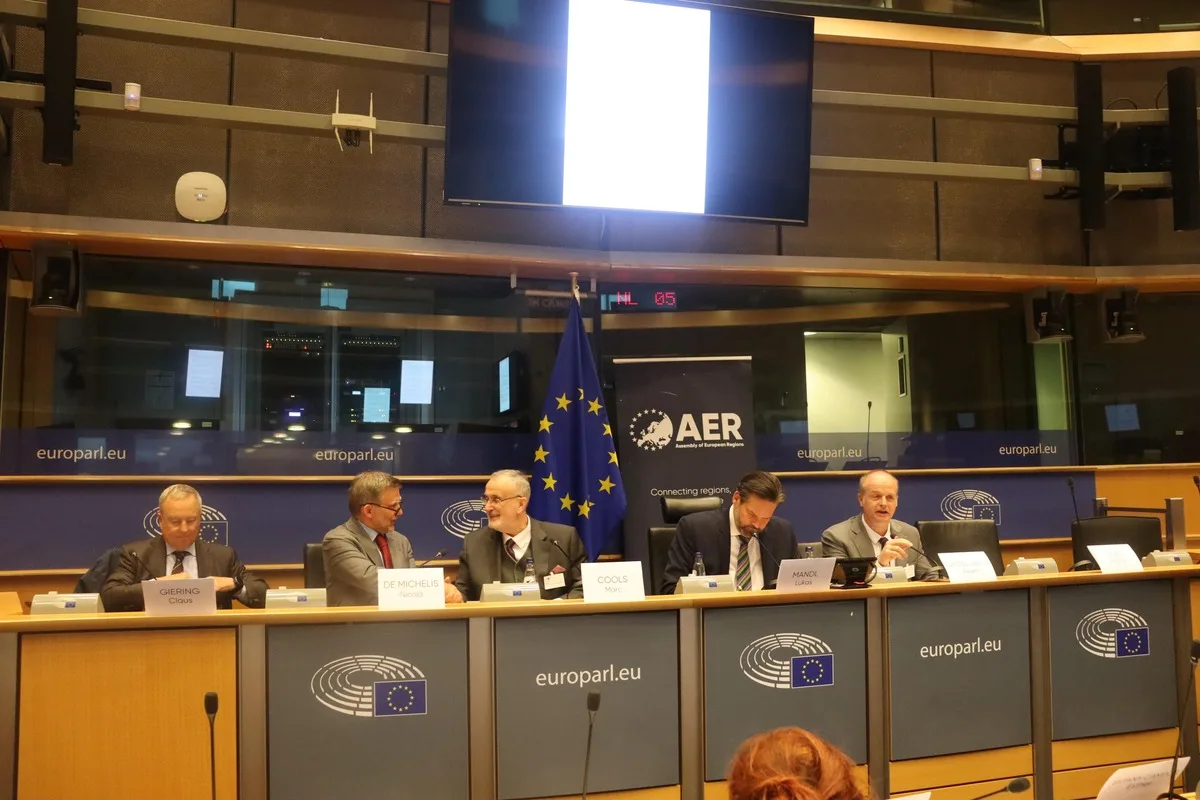 Share this!
Share this!The AER Autumn Bureau and Working group meetings in Brussels on 3 and 4 December wrapped up a year of intense political engagement for and with European regions. The Bureau also hosted a study visit of the Erasmus+ project Climbing the Ladder (CL-YE), which aims to explore models and mechanisms of youth engagement at regional and European levels.
For the AER Bureau, decarbonisation and rural development are essential to the future of European regions
The Autumn Bureau meeting and High-Level Debate took place at the European Parliament, hosted by AER Vice President and MEP Lukas Mandl and MEP Alexander Bernhuber.
After the introductory remarks of AER President Castellanos, Vice-President Sundelin gave an overview of key activities delivered since the Spring Bureau meeting in Batumi in June 2024. From the commitment to build capacity and frameworks for sustainable inclusion through the development of expertise on decarbonisation and rural development to the participation in the UNFCCC COP29 in Baku, and the organisation of bilateral meetings with the EU institutions to advocate for the needs of our regions. The AER demonstrated the ambition and capacity to be the go-to political platform for elaborating comprehensive strategies for the future of European regions.
The future of agriculture and rural development by the words of MEP Bernhuber (EPP, ENVI Committee)
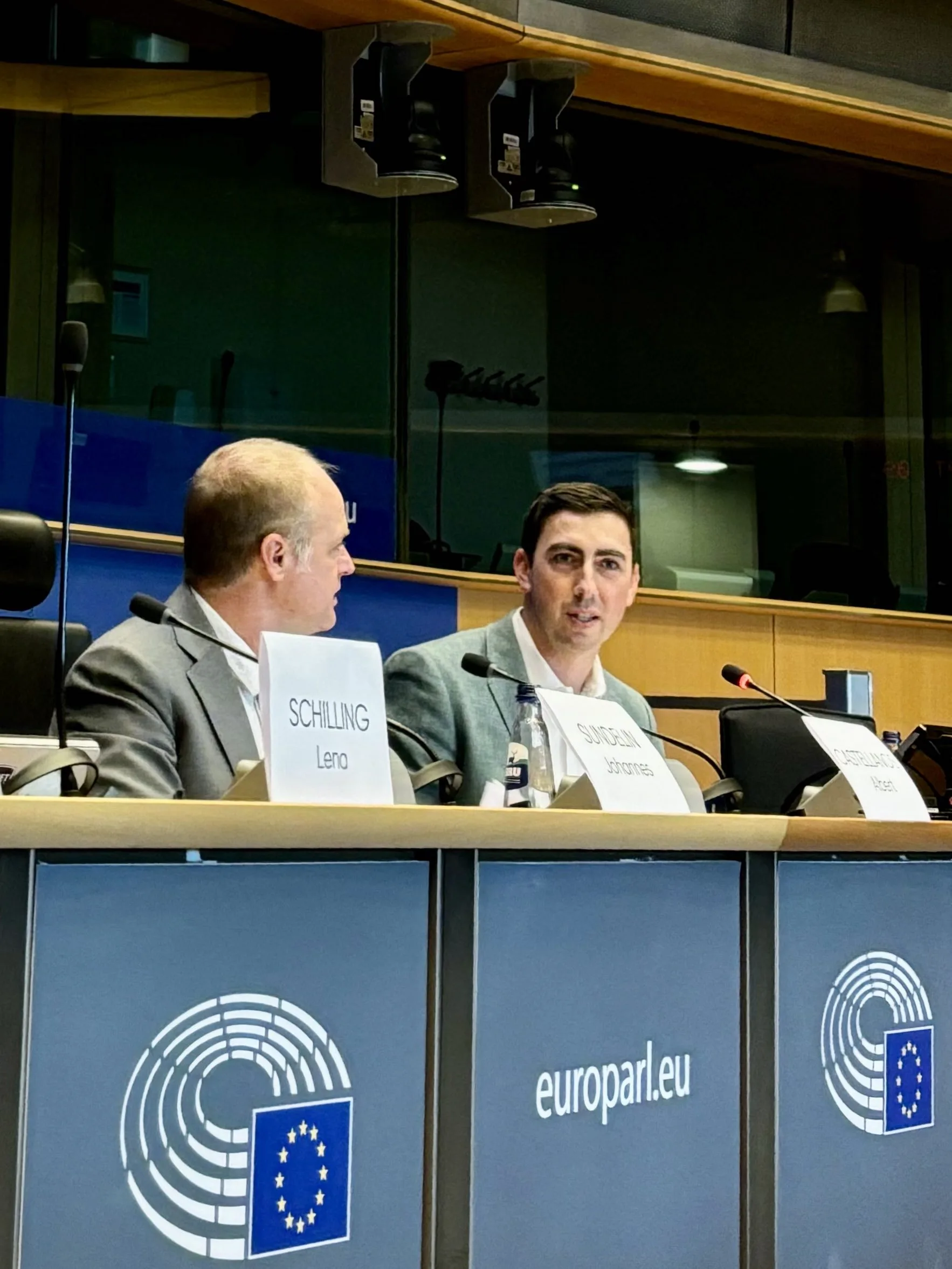
The discussion on the adoption of Position Paper on The Future of Agriculture & Rural Development was an additional demonstration of AER’s capacity for strategic positioning on key issues. Hosted by MEP Alexander Bernhuber, member of the European Parliament’s Committee on Environment, Public Health and Food Safety (ENVI), the discussion emphasized the need for place-based strategies for rural development, which must build upon the diversity of rural regions’ assets and challenges. As highlighted by MEP Bernhuber, designing place-based policies means also consulting directly with regions on pieces on legislation impacting their territories and communities. The debate highlighted how fundamental is for EU policy-making to implement a timely check-up with regional governments about issues impacting their communities and interests, such as soil monitoring and nature restoration.
Towards carbon-neutral regions: the path to decarbonisation by the words of MEP Lena Schilling (Greens/EFA, ENVI Committee) and AER Vice-President Sundelin
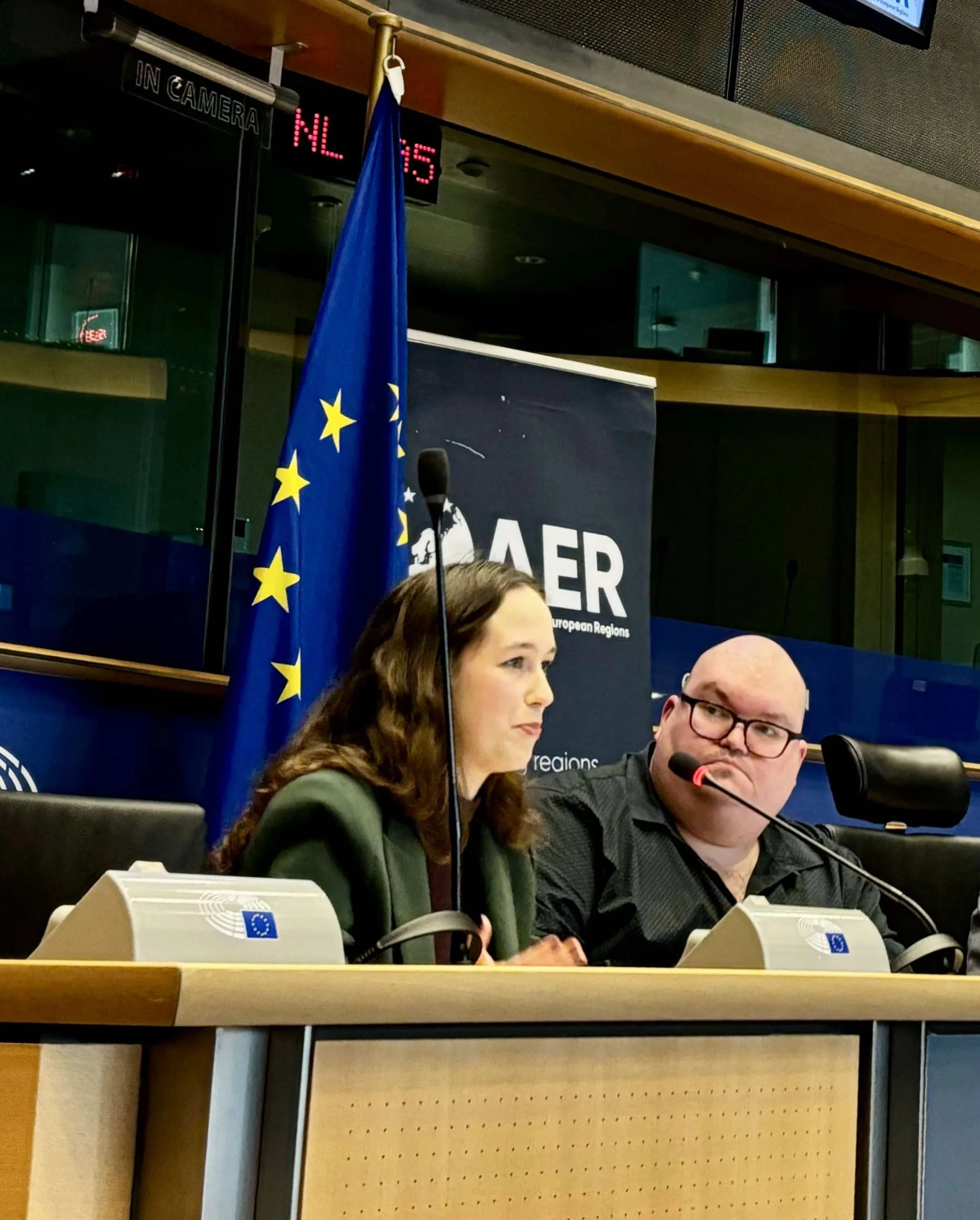
The Autumn Bureau meeting was also the opportunity to discuss and adopt the Position Paper on Decarbonisation: Towards Carbon-neutral Regions, presented and discussed by AER Vice President for Sustainability, and MEP Schilling from the European Parliament’s Committee on Environment, Public Health and Food (ENVI). Acknowledging that the path to decarbonisation is already on course, the paper calls for achieving the goal of net-zero emissions across all strategic sectors of European economy, such as transport, industry, agri-food and tourism, but also for the delivery of a green transition and sustainable growth through the creation of jobs and the involvement of regional authorities in the decision-making processes. As highlighted also by MEP Schilling, a successful transition to a climate-neutral economy depends on the constitution of multi-stakeholder partnerships and alliances featuring private actors committed to innovation and sustainability, but also regional governments and European policy-makers.
A High-Level Debate on Regionalism, EU funds and European democracy in the new European Agenda
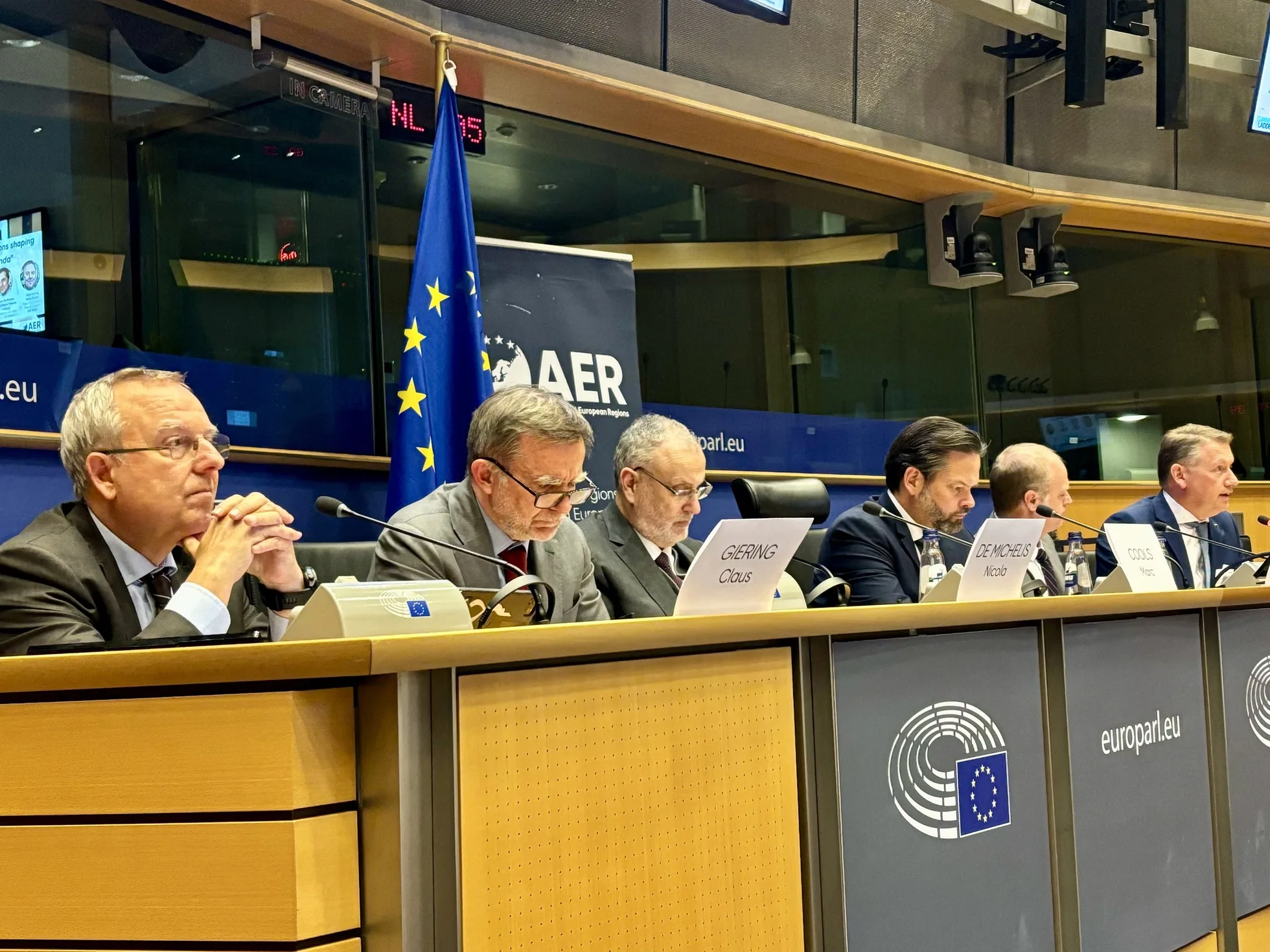
The approval of both positions papers on Agriculture, and Decarbonisation paved the way for a high-level debate on the role of regions in shaping the future European agenda. Moderated by MEP and AER Vice-President Lukas Mandl, the debate featured contributions by Marc Cools, President of the Congress of Local and Regional Authorities, Council of Europe, Harold Zoet, Minister of Agriculture, Province of Gelderland, Nicola De Michelis, Acting Deputy Director-General DG REGIO, Claus Giering, Senior Expert of DG NEAR.
The panelists agreed that regionalism is an essential part of impactful policy-making as it reinforces multi-level democracy, institutional checks and inclusive policies. Considering the substantial pressure on the EU budget caused by parallel key priorities such as digitalisation, green transition, migration and others, the EU will need to extract €30 billion from its current resources, while ensuring the sustainability of innovation incentives and the maintenance of food availability and security. To make this possible, the harmonisation of national and EU funding instruments must be ensured.
The intersection between mental wellbeing and healthy democracies at the centre of the Breakfast Briefing on Mental Health
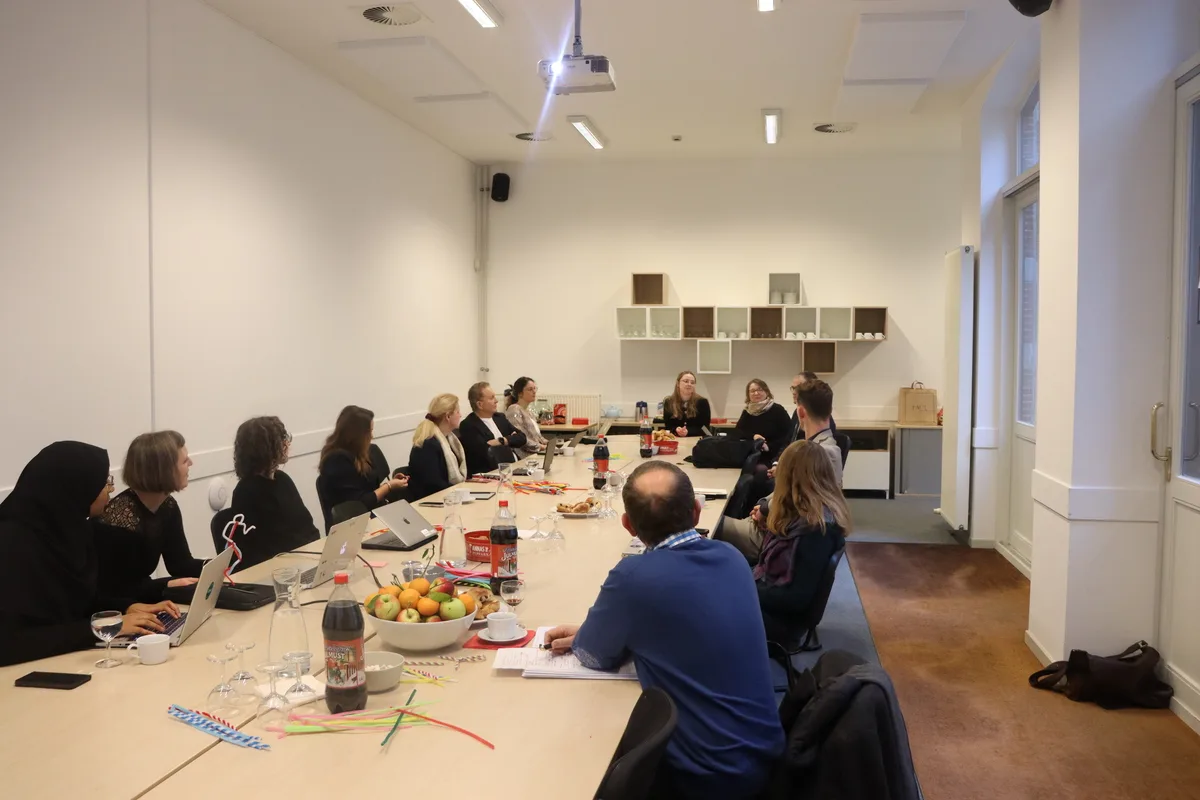
What are the connections between healthy democracies and healthy citizens? How do participatory and deliberative practices foster trust? Why does trust matter? How do we build the relational competences, that are needed for mental wellbeing as well as for vibrant democracies? These were some of the questions members of the AER Working Group on Mental Health explored during the Breakfast Briefing ‘How to Build Resilient Societies to foster Mental Health’ led by the Chair of the Working Group on Mental Health Daniel Schützer (Varmländ, SE).
Anastasia Deligkiaouri, Policy analyst at the European Commission’s Joint Research Center (JRC), offered insights on the fundamental role of trust in strengthening the credibility and resilience of democratic institutions in the wake of disinformation and malicious fake news. Her presentation “Strengthening democracies with participatory and deliberative approaches” showcased several democratic innovations, which are further explored in the European Commission’s Competence Centre on Participatory and Deliberative Democracy. The effects of deliberation on participants are multifold, it:
- increases their knowledge on a topic and their self confidence
- enhances their reasoned opinions
- fosters collaboration, mutual respect
- develops understanding of the diversity of perspectives, and the capacity to listen
- creates a feeling of ownership and contribution in the final outcome and a sense of being valued.
The Joint Research Center provides a wealth of resources to support evidence-informed policymaking on its Knowledge for Policy website.

The theme of trust and care was then further explored from a completely different angle by Jocelyn Deloyer, Senior Project Manager at the Centre Neuro Psychiatrique Saint-Martin (Brussels Capital Region). He shared how the TRUST Erasmus+ project destigmatises mental health problems and fosters connections between mental health centers and artists. Through art therapy, the TRUST project fosters individual and collective healing in the aftermath of traumatic events, with particular attention on war traumas affecting survivors in Ukraine. In addition to experimenting innovative paths to mental wellbeing, the TRUST project has also the goal of promoting EU values of peace, solidarity, and inclusivity. Participants played with the different ideas and inputs to further explore insights for policies and practices in the regions as well as potential collaborations. They agreed on the next activity, which will be an online study visit to Värmland in Spring 2025. All information about the Working Group on Mental Health can be found here.
Challenges and achievements in the field of green hydrogen discussed at the Working Group on Green Hydrogen
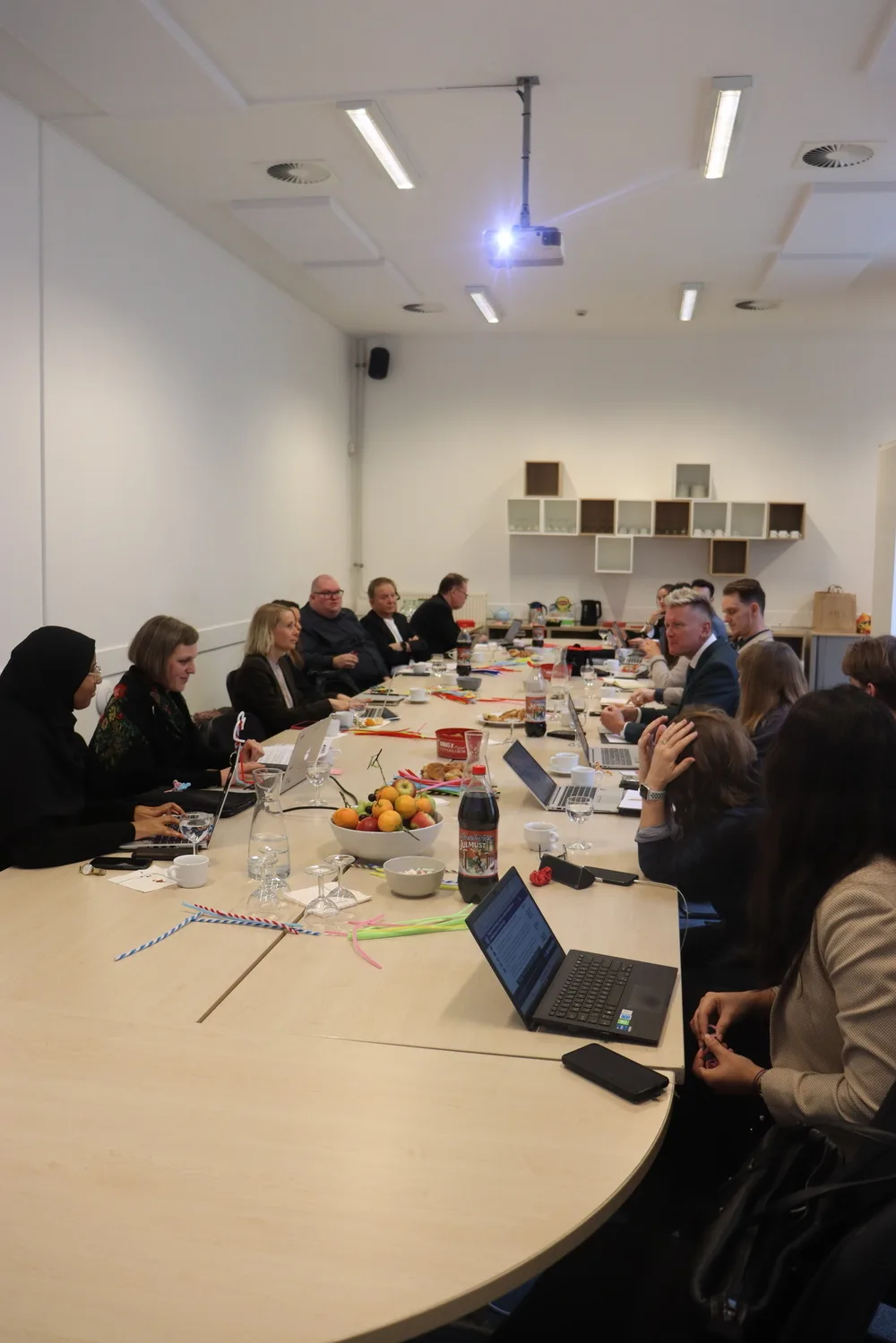
As the Breakfast Briefing wrapped up, the Workshop on Green Hydrogen kicked off. Participating regions shared challenges, as well priorities and achievements in deploying green hydrogen infrastructure boosting the green transition at European level. For example, many regions reported difficulties in developing hydrogen facilities in various fields, from storage to transportation to implementation to agriculture and energy production.
For example, the Swedish region of Norrbotten, highly industrialised and high consumer of energy, shared the timeline and goals of the HYBRIT project, which, when completed, will be the world’s largest fossil-free steel plant. As highlighted by AER Vice President for Sustainability, Green Transition and Health Johannes Sundelin, the successful implementation of the HYBRIT project is fundamental to green and sustainable recovery of regional and national economy, highly dependent on the local mining activity.
The workshop concluded by establishing a timeline of upcoming activities, including a webinar on the development of regional hydrogen ecosystems early 2025 and a study visit to discover Norrbotten’s greening of the mining industry through hydrogen innovations late Spring. More about the Working Group on Green Hydrogen can be found here.
A successful partnership with the European Economic and Social Committee (EESC)
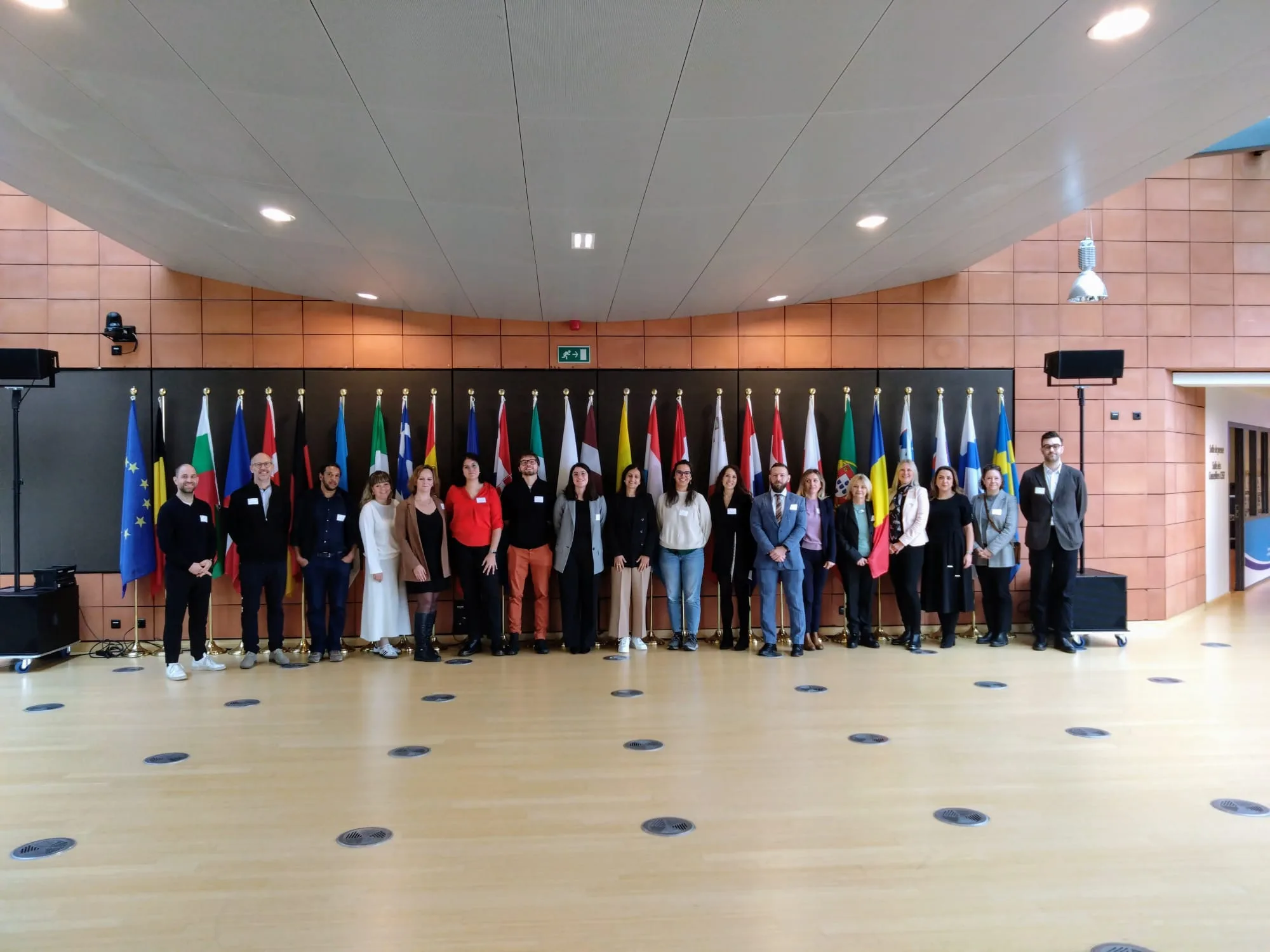
The AER Autumn events and the CL-YE project study visit created the perfect space for a partnership opportunity with the European Economic and Social Committee (EESC). AER members and CL-YE delegates engaged in a discussion with the EESC representative of the Ad Hoc Group on Youth Susannah Hallgren. From the role of the EESC in strengthening civil society voices to its commitment to engage youth representative across Europe, participants had the opportunity to learn more on the goals and activities of the Committee. Among the most recent achievements, the implementation of the EU Youth Test stands out as the EESC is first EU advisory body to unleash the empowering potential of youth participation. The CL-YE project was also presented, and the study visit offered an important occasion of mutual exchange with the EESC, thanks to the results achieved so far by the project.
Adopted in September 2022, the EU Youth Test is a tool that enables youth representatives to participate in the opinions of the EESC, ensuring that its advisory capacity is consistent with the priorities of involving youth in a policy-making based on consultation, impact assessment and mitigation measures. The AER Youth Regional Network, that gathers young leaders across European regions, was selected to take part in the implementation of the EU Youth Test.
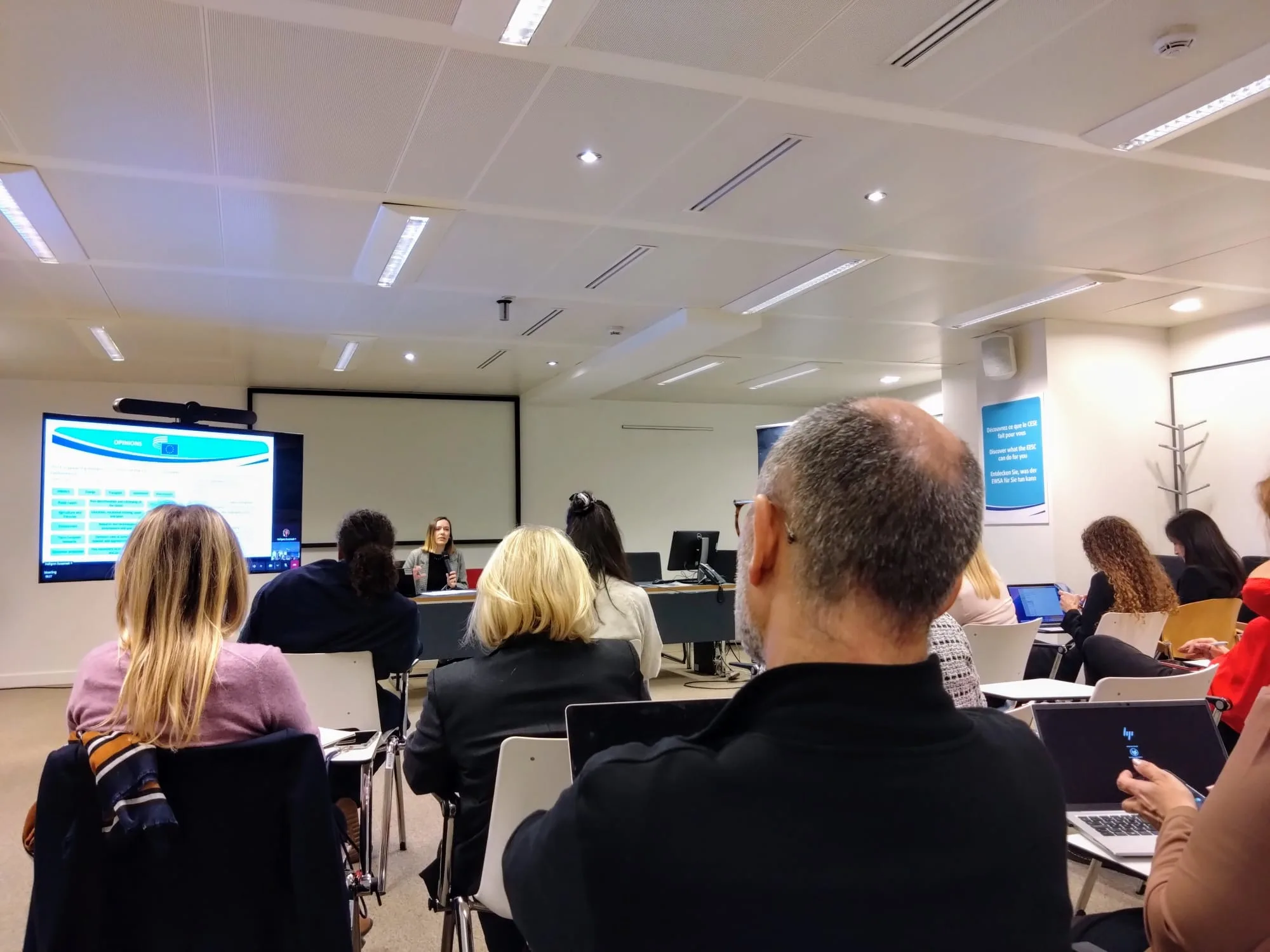
As announced at the end of Autumn Bureau meeting, the Spring Bureau will take place with the General Assembly in Maribor, East Slovenia, in June 2025. In this occasion, the Assembly of European Regions not only will renew its political leadership, but it will also celebrate its 40th Anniversary.


